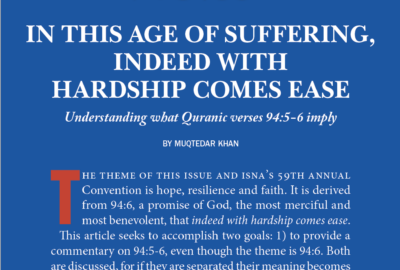What is Independent Thinking?
For various theological and historical reasons the idea of “independent thinking” has become a highly contested one within the Muslim community. The term means different things to different people and based on these different understandings, people engage in either advocating or rejecting independent thinking among Muslims. In this article I hope to clarify some of the major interpretations of the term and the related politics of meanings.
The jurists use independent thinking as an elucidatory instrument. It is to be invoked in order to understand the injunctions of the Shariah on issues on which the primary sources, The Quran and the Sunnah are silent. For some it is an exercise of opinion (Ra’y as with the Hanafis) and for some it is merely the practice of qiyas, analogical reasoning (The Shafiis). There are of course some schools which leave no room for any independent thinking claiming that the sources are comprehensive. There are also variations in this school of thought. Some privilege only The Quran, others overemphasize the Sunnah, some claim to maintain a balance. The juristic understanding remains, conservative, often defensive and even paranoid.
Outside the discourse of the traditional jurists, intellectuals, reformers and philosophers, have seen independent thinking as not only inevitable but a mandate, that enables the continuous renewal and revival of the Islamic spirit. For them independent thinking is the use of reason, science, and experience to understand Islam in the present context and also understand God’s creation. God has spoken to humanity through many media, texts and prophesy are just one medium. The universe around us is also God’s continuous communication. Independent thinking is thus another way to understand God’s message through reading his other book — nature. Ibn Tufayl’s famous story of Hai Ibn Yaqzan, is a brilliant example.
To my mind, independent thinking is more than a “process” or an activity. It is also not just a juristic tool. For me independent thinking is a state of being. It is the state in which a human being realizes that he/she is a fully functioning cognitive, rational and moral being, aware that one is accountable for one’s actions to a higher being, and would therefore like to always act intentionally and meaningfully. This intent and meaning in action can only come from within.
Therefore a comprehension and awareness of the logic and motivation behind every action is necessary. Such cognitive and reflective beings can only emerge if one takes one’s cognitive and rational faculties seriously. If however one rejects one’s own rational and cognitive capabilities then one has rejected one’s own humanity. One can then only be an ape! Islamic theology has a term for this aping, it is called taqleed. I cannot conceive of any human and any Muslim as an ape. Therefore aping (taqleed) is not an option.
Given this, how do we understand the relationship between Sunnah and independent thinking? Does independent thinking necessarily reject Sunnah. NO! Independent thinking rejects aping, blind imitation, without understanding. Muslims are not required to ape the Prophet of (Islam). Just as we choose to sport a beard even when safety razors are available but not ride a camel when a car is available. We understand the Sunnah and its meaning so that when we act, we can also invest an Islamic meaning in our actions.
There are also popular understandings of the term independent thinking. Muslims who believe that Islam is not limited to that past and its principles are adaptable to the changing conditions of modern life, see independent thinking as a means of reconciling the demands of contemporary life with Islamic injunctions.
But there are also Muslims, who are paranoid and think that independent thinking and Shariah are mutually exclusive. Therefore if we advocate independent thinking we advocate a departure from the Shariah. These Muslims are laboring under the assumption that the shariah is a static body of fiqh articulated in the first and the second century of Islam. To put it bluntly, they confuse the opinions of the classical scholars with shariah and so independent thinking becomes anti-shariah because it may entail disagreements with past scholars.
Needless to say, the popular understanding od the term independent thinking are simplistic and over generalized. They are mere reflections of people’s attitude towards life itself. Those who are not afraid of change view independent thinking positively. While those who are afraid of change see independent thinking as dangerous, even anti-Islamic.
I believe that the present socio-political, economic, geopolitical, moral and cultural conditions of the Ummah is less than acceptable. We cannot and must not exist as we do today. Therefore change is necessary, indeed inevitable. By corollary independent thinking is necessary and inevitable. It has to happen and will happen. It is only a matter of choice. To we take the first step or wait for the next generation. I think why put off till tomorrow what can be done now!









I so much like this analysis. I was once stopped in a lecture when I wanted to engage relecvant issues in the Muslim community. The defense was that the Ulema have spoken and nothing can change that!!
I am disgusted with Muslim leadership and their abuse of Islam.
Assalam alaikom. Great article. I love it.
Pingback: Does Islam Allow Discourse and Critical Thinking? | About Islam